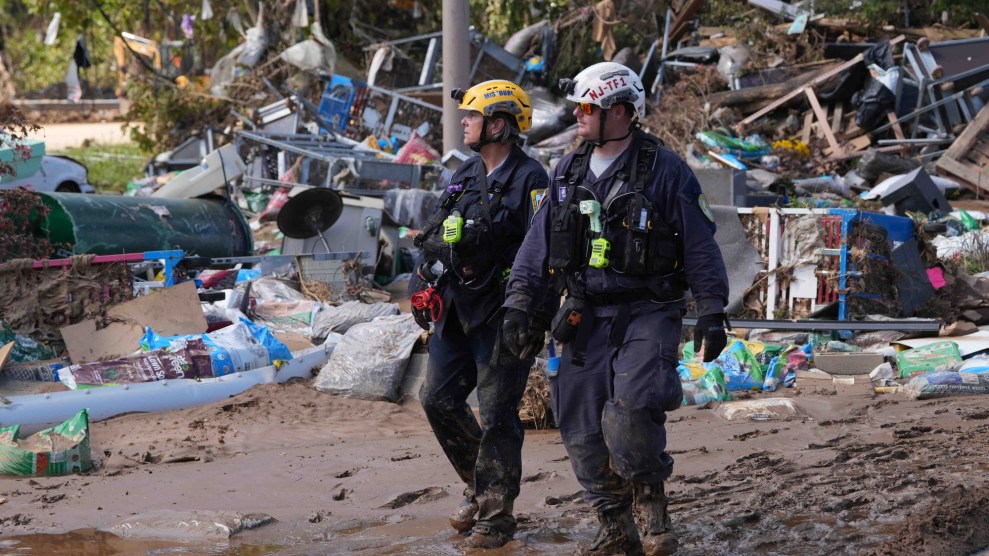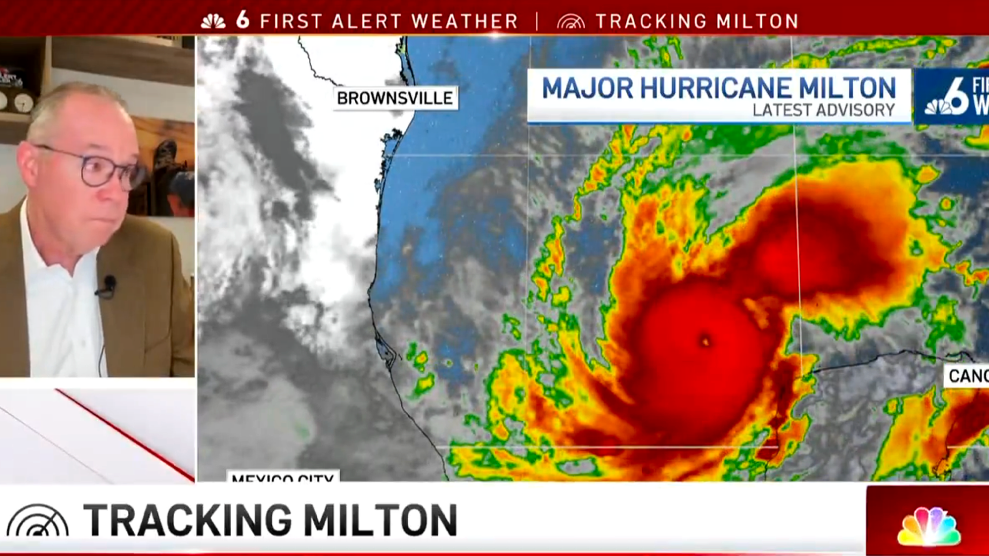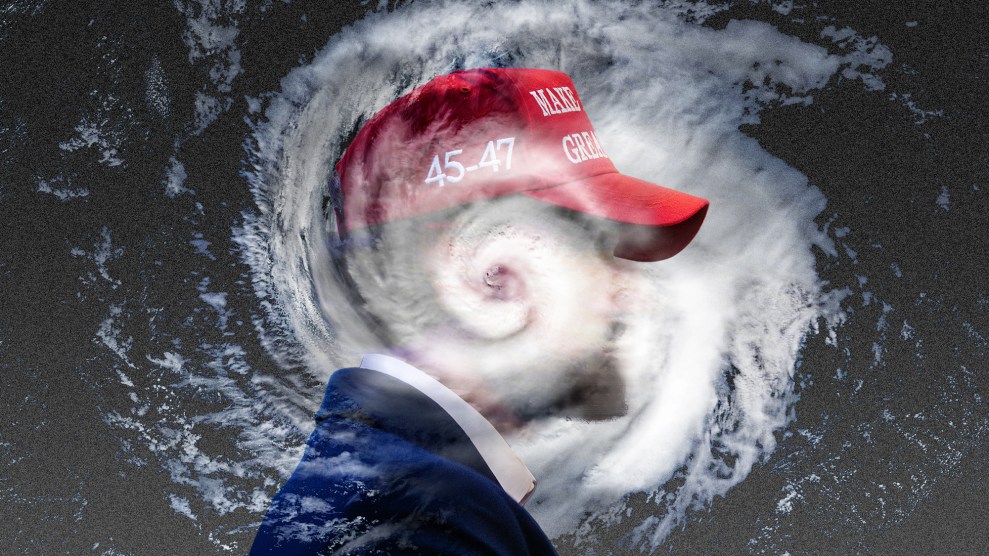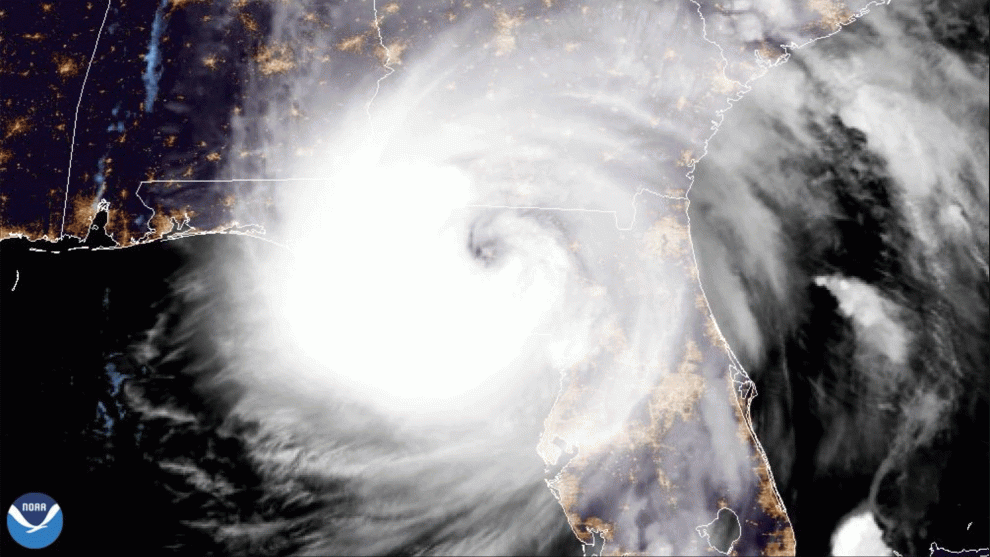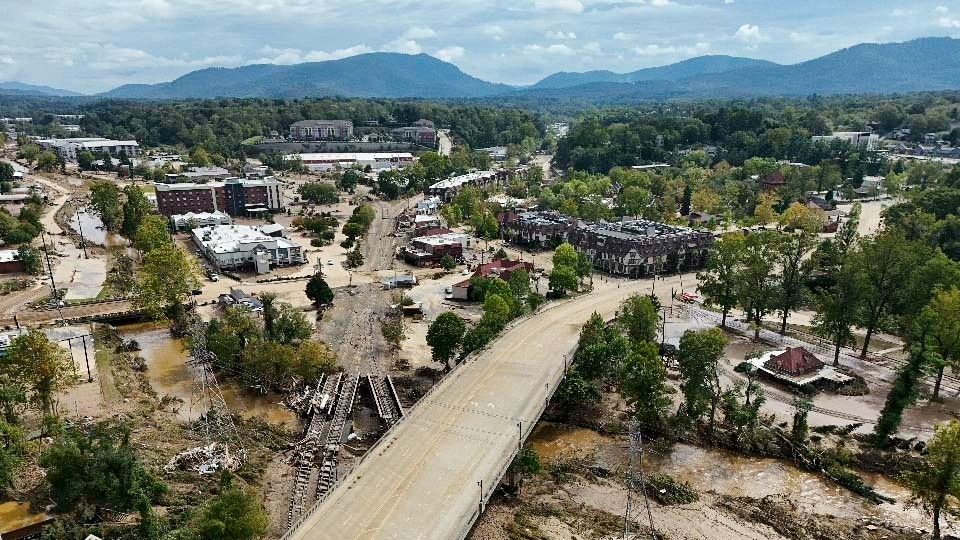
Asheville, North Carolina, in the immediate aftermath of Hurricane Helene in late SeptemberMike Stewart/AP
In August, political science professor Ashley Moraguez started the fall semester at the University of North Carolina Asheville with “grand plans” for engaging students on electoral politics. As the director of UNC Asheville Votes, a nonpartisan student-run group, Moraguez planned for fall to be the “Semester of Civics”—including voter registration tabling events, meet-and-greets with local candidates, and a “Party at the Polls” in Reed Plaza with food and live music.
North Carolina is a crucial swing state that will likely be won by a razor-thin margin; Trump leads Harris there by about 1 percentage point.
For students, an age group with historically low turnout, these efforts weren’t an abstract exercise: North Carolina is a crucial swing state that will likely be won by a razor-thin margin. Donald Trump won the state by less than 75,000 votes in 2020 and now leads Kamala Harris there by about 1 percentage point, according to recent polls. In other words, every vote in North Carolina matters.
Then in late September, Hurricane Helene hit. The storm dumped nearly 14 inches of rain on Asheville, causing roads and neighborhoods to flood and killing nearly 100 people statewide. UNC Asheville, a campus of 2,900 undergraduates, lost electricity and running water. Students and faculty relocated. Classes were canceled and will be held virtually for the rest of the semester.
Now, after Helene, getting to the polls—or getting a hold of an absentee ballot—got even harder for college students in western North Carolina.
This has made Moraguez’s work more challenging, and also much more important. With the campus closed, the university relocated its early voting site from the student union to the edge of campus, at a health center. Moraguez and UNC Asheville Votes pivoted to providing virtual resources—a website, Instagram page, and email address where students could ask voting-related questions. “I’m really heartened by how many students, amidst everything they’re dealing with, have been reaching out with questions so that they’re making sure that their ballots do count,” she says.
Still, she says, it’s hard to know who, or how many, the group is reaching. Parts of western North Carolina still don’t have utilities, electricity, or wifi. And many students, understandably, have more pressing issues than figuring out how to vote. “They’ve lost their homes and their loved ones,” Moraguez says. “And they’re just trying to figure out how to survive right now.”
As a political science professor and voting leader in Asheville, Moraguez is uniquely positioned to explain the challenges this key demographic faces post-Helene. And she, at least in part, understands what they’re going through: When I spoke to her earlier this month, on the first day of early voting in North Carolina, she had no reliable internet or potable water at her home in Asheville and had spent the previous weeks “bouncing around” and staying with family in other parts of North Carolina and Georgia.
Here’s an edited and condensed version of our conversation:
With the university on hiatus and then switching to remote classes, there’s almost an echo to what happened when Covid broke out. Did the pandemic help prepare you for this? Does it feel familiar?
Yes and no. In the 2020 election cycle, we had to completely rethink how we did voter engagement on campus. I’ve learned a lot since 2020 about how to engage people remotely.
Students taught me how to use social media more effectively. We figured out how to communicate better about complex electoral information over email through trial and error. We had the website ready to go. We had the Instagram page ready to go. We didn’t have to start those from scratch, as we did in 2020. So in that respect, despite these really unfortunate and tragic situations, we were ready to pivot our electoral engagement efforts much more quickly than in the past.
The challenge is that I still don’t have reliable internet at my home. I don’t have potable water at home. Will I be able to teach online? Do I go stay with family? My students are going to have utility and infrastructure issues. Those issues are more severe than I remember from 2020.
What do you mean when you say students helped you learn to navigate social media better?
When I was in college, Facebook was the social media of choice. I graduated from college in 2009. I wasn’t super familiar with Instagram Stories, and I don’t think I fully recognized the extent to which young people do get some of their information and news from social media.
Students really taught me how to more effectively convey useful information on social media in a way that’s palatable to young people, and how to make things more aesthetically pleasing, more likely to get attention. I don’t primarily get my news from social media, and so it was really helpful for me to have students leading this. I’ve learned just as much from them as they have from me.
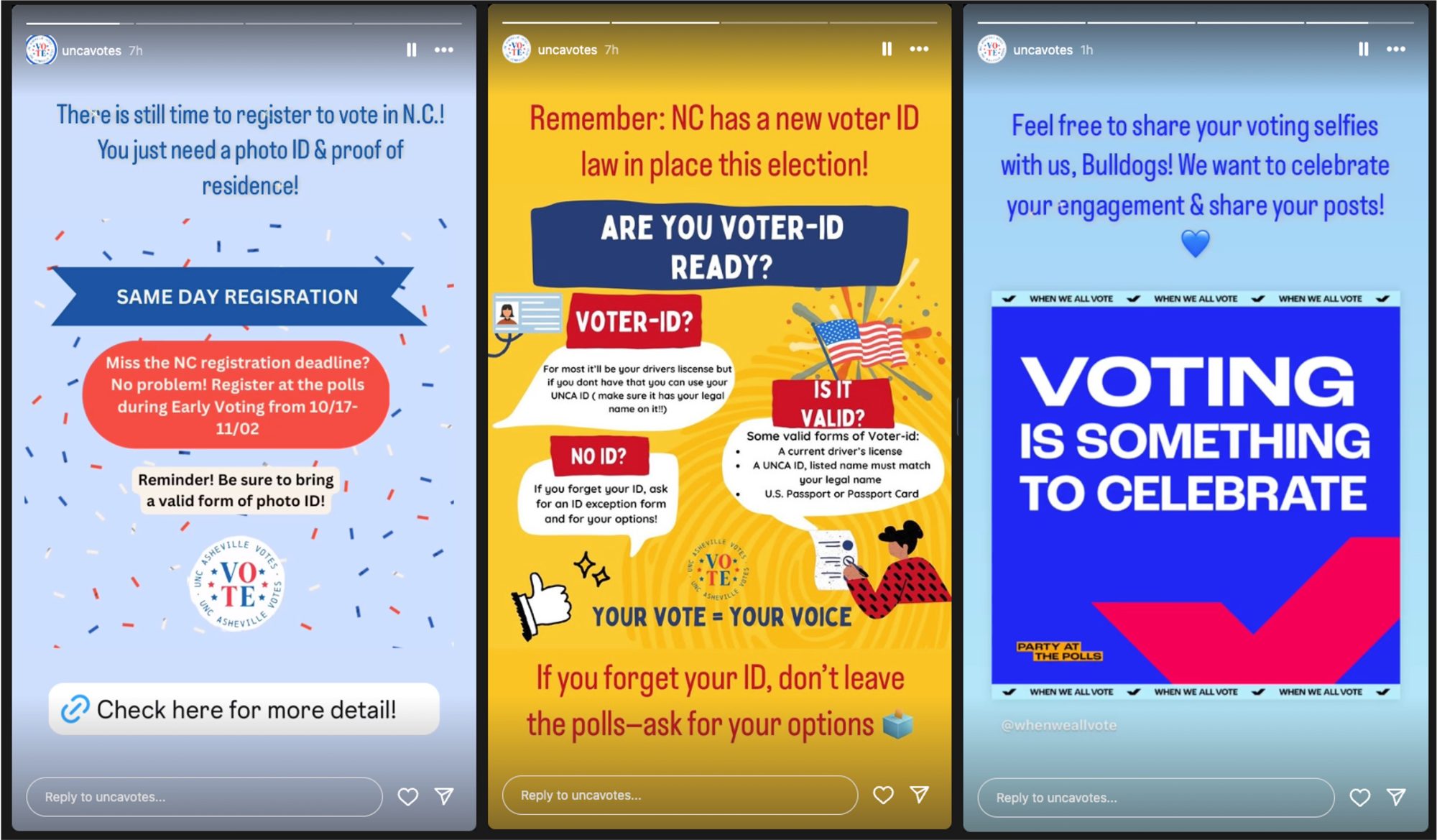
What are your biggest challenges right now in getting-out-the-vote efforts?
It’s hard to know who we’re reaching. I fear that in our campus outreach efforts— since they all have been online—that we’re missing some potential voters in western North Carolina who are most affected by these storms.
Our State Board of Elections and our state legislature have adopted a slate of emergency measures to help voters in western North Carolina have better access to the polls, but those changes are only effective in so far as voters are aware of them.
“They’ve lost their homes and their loved ones, and they’re just trying to figure out how to survive right now.”
And there are some people who just have much more pressing issues on their plate right now than thinking about the election. They’ve lost their homes and their loved ones, and they’re just trying to figure out how to survive right now. And you know, their votes matter, their voices matter. And I think right now, especially, we want to hear from people who are having those experiences, but they might not be getting the information they need or have the capacity to vote right now.
I was in college during the 2016 election. I requested an absentee ballot from Florida, which is where I grew up and where I was hoping to vote. It never came. And I just never followed up on it and never voted. Is there a concern that, at the end of the day, these are teenagers or young adults in their early 20s and we’re asking a lot of them to stay on top of voting?
It’s undoubtedly true that young people—which I’m defining as 18 to 25, roughly—have lower voter turnout rates than other demographic groups. But I think there’s a couple reasons why that is and why it’s unfair to compare young voters to older groups.
Political science research shows us that voting is habitual. It’s a habit that you develop over time, and once you get into that habit, you are going to almost certainly be a reliable voter for the rest of your life. And so how can we expect first-time voters to have those habits when they haven’t been legally allowed to engage in those habits?
There’s also a narrative out there about young people being really apathetic and not caring about issues, and that is just not what I observe in working with young people in or outside of the classroom. Instead, I tend to see it as an issue of access. It’s just hard to get involved. There’s a lot of rules and deadlines and barriers in place, regardless of where you live. There’s just a big startup cost to getting involved. And so if there isn’t someone there to help you navigate that, it can be really disincentivizing to vote or to get engaged in politics otherwise, because you just don’t know where to start.
For students who are studying at UNC Asheville from out of state, will they be able to access the absentee ballots sent from their home states?
Overwhelmingly, our students are North Carolina residents. I think this year, about 13 percent of our student body is an out-of-state US resident. So that would equate to about 300 to 400 students. Of those students, it’s hard to know how many of them would be registered in North Carolina versus in their home state.
“There’s a narrative out there about young people being really apathetic and not caring about issues, and that is just not what I observe.”
For those students who were on campus and had requested an absentee ballot before the storm hit, it is possible [they] had to evacuate before they received their ballot. It’s hard to know how many students this is affecting, but almost certainly, it is affecting some voters.
The advice we’ve been giving those voters is to contact their local or county elections office as soon as possible and request a reissuance of their ballot.
Historically, after severe hurricanes, you often see a decline in voting. Has disaster-related voter suppression come up in your classes at all?
I teach courses on US elections. We talk about barriers to voting, not just devices or laws in place that could make it easier or more difficult for people to vote, but also socioeconomic factors that can make it harder for some groups of people to vote than others. I’ve never spoken with my students specifically about how natural disasters and recovery efforts could affect the dynamics, but rest assured that we will be once our classes pick back up.

